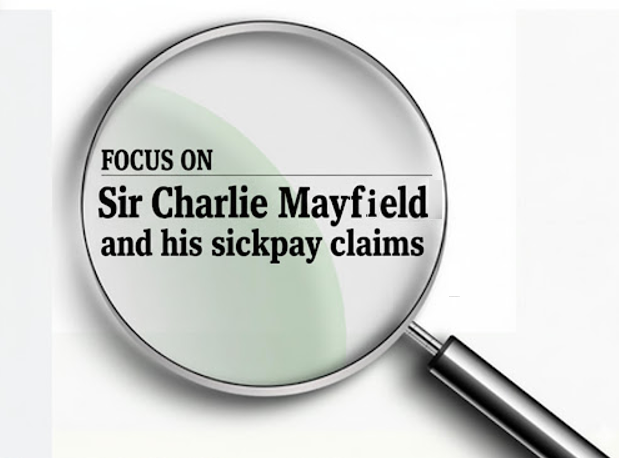
On UK Peers’ attempts to water down Employment Rights Bill
Improvements in workers employment rights coming from Labour’s Employment Rights Bill will have to wait longer as Tory and Lib Dem peers have voted to water down key protections.
The Bill which brings a ban on exploitative zero hours contracts; day one unfair dismissal protection, removal of anti-trade union red tape; and better statutory sick pay and is seen as a social democratic attempt to act on the rise of insecure work. The TUC has urged the government to stand firm against amendments which would allow employers to continue to blatantly exploit workers with insecure contracts and dismiss them without reason or process.
The Employment Rights Bill will give statutory rights to millions of workers who face exploitation from unscrupulous employers. The proposed amendments would weaken the Bill, and, as a recent TUC report highlights, over two million workers will continue to be without protections if these amendments are allowed to pass..

The Workers Party has been calling for the rights included in this bill for decades, and it is by far the most popular policy the government has adopted. Tory and Lib Dem peers are attempting to water down the bill with these amendments which, if carried, would create loopholes allowing employers to avoid providing contractual hours, thus retaining in practice, precarious and zero hours contracts.
Amending day one protections, to six months service, would place workers in a position to be exploited and sacked unfairly by bad employers. This Bill is about creating fairer statutory protections in the workplace and it must not be watered down.
Ex-John Lewis Boss warns that Britain is sliding ‘into economic crisis’ over £85bn sickness bill
It did not take long for those who are opposed to the Employment Rights Bill to jump on the right-wing bandwagon, claiming the Bill included some disincentives to hiring people with existing illnesses. The report highlighted that there were 800,000 more people out of work now than in 2019 due to health conditions, which Sir Charlie Mayfield (see below) said is costing employers £85bn a year. There has been no detailed breakdown of how that figure was arrived at. Whilst we all wish to see a situation where people can remain in work with health conditions, “one size does not fit all”.
The Workers Party noted the claim that some GPs said they found it difficult to judge whether a person is suitable to work while they are ill but are asked to issue sick notes by patients. This is questionable as the GPs know their patients and their medical conditions and have the responsibility to make those decisions. No account seems to have been taken of the types of jobs individuals carry out or the physical nature of the work, or the mental toll on certain jobs for those with mental health issues.
It is hardly surprising given the lasting effects on some following the covid pandemic, or the poverty, deprivation, and health inequalities, and waiting lists for treatment because of the underfunding of the NHS over the past number of years, that more people are suffering ill health. He added employers should make reasonable adjustments for staff to return to work and should shoulder the responsibility especially when the illness is workplace related.
The department of works and pensions, should also make public the amount of benefits that have to be paid due to the low wage economy that effectively subsidises bad employers. They should also ensure the Employment Bill is passed which could facilitate those wanting to work in sustainable employment without the fear of being unfairly treated or fired because of health conditions or disabilities.

by Admin at workersparty.net
Sir Andrew Charles Mayfield was educated at Radley College, a private boys school in Oxfordshire (current fees £60,000 per year) and followed in his father's footsteps by attending Sandhurst and then serving in the military, where among other deeds, he served in Northern Ireland in the 1980s.
After retiring from the army, Charlie went on to pursue careers in government and business, most notably as managing director of the John Lewis shopping chain. Theoretically, John Lewis operates an employee-owned model where its 80,000-plus staff are referred to as 'partners’. In a profile of Charlie in 2017, the Daily Mail announced that “despite revealing increased profits of £370million” Charlie cut staff bonuses to 6 per cent – the lowest since the 1950s. So, despite the nice words, not much partnership from Sir Charles and John Lewis.
Sir Charles is a propagandist for the cause of UK capitalism. His claim that sick-pay is costing employers -aka ‘job creators’ - £85bn per year is a case in point. The fact is that employers ultimately gain all their wealth on the basis of the labour performed by their workers.
As American activist Hadas Thier notes, “the ability to work has become a commodity under capitalism, which the capitalist buys in exchange for a wage. … We are selling our ability to work — our labor-power. ...Labor-power is bought by the capitalists for a wage. But the value of this wage and the value that labor, once employed, then produces for the bosses, are two very different things. The worker is paid one thing, but then will normally create much more value during her shift than she is paid.”
The class that Mayfield represents produces no value but accrues its profits on the basis of workers’ labour. We should be outraged that he and his people are trying to claw back even more profit from sick workers

